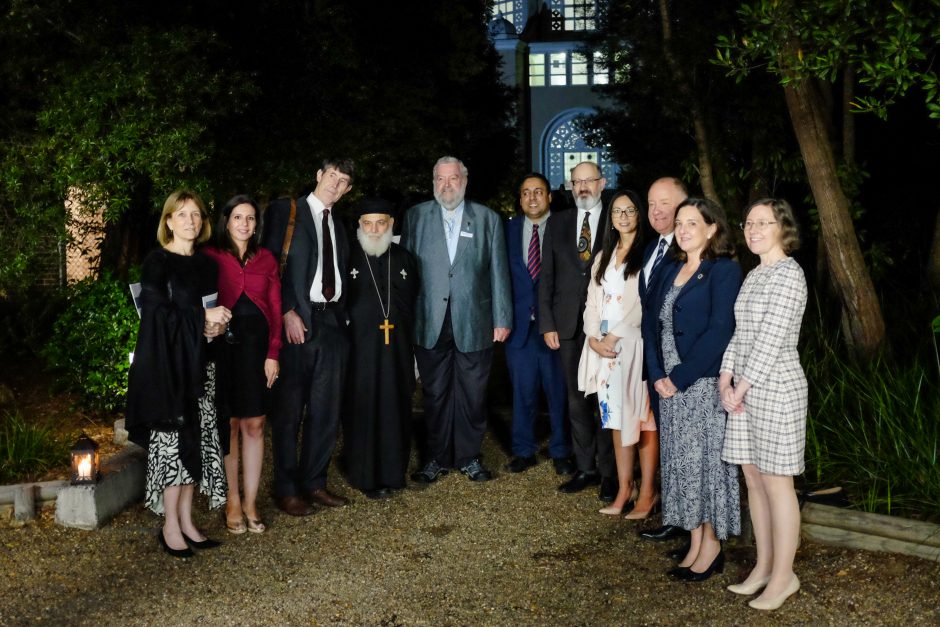The Bahá’í community has long espoused the ideal of unity, drawing inspiration from its foundational texts and teachings. The celebration of “100 Years of Fostering Unity” through the “Conversations on Social Cohesion” initiative in Australia at the close of this significant centenary presents a compelling case study. In this context, the phenomenon of social cohesion is not merely a societal aspiration but a profound reflection of the Bahá’í principles of inclusiveness, empathy, and interdependence.
Social cohesion is defined as the bonds that bring people together, forming a cohesive society. In Australia, where diverse cultures and ethnicities coexist, the celebration reflects an acknowledgment of both the challenges and opportunities inherent in forging a unified community. The Bahá’í perspective posits that the strength of a society lies in its ability to embrace diversity, fostering an environment where harmonious interactions emerge through mutual respect and understanding.
Over the past century, the Bahá’í community in Australia has implemented various initiatives aimed at social development and cohesion. These activities underscore a commitment to the ideals of justice, equity, and collective prosperity, paralleling the overarching aims of national enrichment through unity. Such endeavors encapsulate the essence of Bahá’í teachings, which encourage individuals to transcend superficial differences and work collaboratively toward common goals. The recent conversations have catalyzed discourse surrounding the necessity of unity in a rapidly evolving social landscape, addressing key issues such as inclusion, discrimination, and cultural respect.
One notable aspect of these discussions is their emphasis on addressing a common observation: as societies evolve, the fabric that binds individuals together can fray. This observation invites a pivotal inquiry into the most salient reasons for the fascination with social cohesion initiatives. The underlying realities that provoke interest often stem from the juxtaposition of the human need for connection with the contemporary phenomena of social fragmentation and polarization. In an age where technology diversifies communication modes yet paradoxically exacerbates feelings of isolation, the Bahá’í framework provides practical solutions to mitigate these challenges.
The centenary provides a strategic opportunity for reflecting on past achievements while simultaneously envisioning future endeavors. Central to this is the concept of consultation — a Bahá’í principle that encourages inclusive dialogue and collective decision-making. The conversations held during this centenary celebration have aimed not merely at graduate-level engagement but at fostering a grass-roots understanding of social cohesion. By transcending academic rhetoric, participants are invited to share lived experiences, culminating in a rich tapestry of perspectives that collectively illuminate pathways toward unity.
Moreover, the reflections on social cohesion reveal a more profound, intrinsic value embedded in Bahá’í teachings: the interconnectedness of humanity as fundamentally one race. The narrative of unity is prevalent in Bahá’í texts, particularly in the proclamation that “the earth is but one country, and mankind its citizens.” This assertion underpins the urgency of fostering social cohesion, as it resonates deeply within the discourse, encouraging individuals to actively pursue collaborative relationships that are inclusive and equitable.
As the centenary draws to a close, an essential theme emerges: the need for continuous engagement in fostering social cohesion. The Bahá’í community advocates for a proactive stance in addressing issues of inequity and structural injustice, emphasizing that the collective advancement of society is contingent upon the individual recognition of each person’s intrinsic worth. This recognition serves as a catalyst for action, compelling individuals to participate actively in their communities, to serve one another, and to champion the principles of fairness and justice that are cornerstones of the Bahá’í worldview.
The insights gained from these conversations accentuate the multidimensional approach to social cohesion. Beyond mere interaction amongst diverse groups, the emphasis lies in cultivating a culture of understanding and collaboration where community members are seen as co-participants in a collective journey. Educators, leaders, and individuals from various sectors are encouraged to contribute their unique insights, thus fostering a platform where differing opinions can converge into a harmonized vision for a shared future.
In conclusion, “100 Years of Fostering Unity” serves as both a reflection and an impetus for ongoing discourse related to social cohesion within Australia. The Bahá’í community’s commitment to fostering an inclusive society is imbued with a recognition of the value of diversity, underscoring that the strength of unity lies in collaboration, empathy, and mutual respect. As the centenary celebrations serve to commemorate past achievements, they simultaneously implore the community to envision a future wherein the principles of Bahá’í teachings continue to resonate, illuminating the paths toward enduring unity and sustained social cohesion in a complex and multifaceted world.
